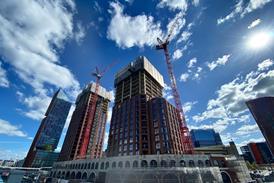Move would help non-EU architects jump the visa queue
The government has been advised to add architects to the list of occupations the country is short of.
The profession was included on an expanded “shortage occupation list” by the Migration Advisory Committee yesterday.
People qualified to do jobs on the list are effectively able to jump the queue for tier 2 skilled visas for non-European migrants. Currently people from the EEA don’t need a visa to work in the UK.
Web designers, psychologists and vets are among the other professions which the MAC advised should be added to the shortage list. The list already includes nurses, geotechnical engineers and contaminated land specialists. If a job is on the list it removes the requirement for employers to advertise the job to UK workers.
Under the MAC’s proposals, the list would cover 9% of jobs in the labour market, compared with approximately 1% currently.
MAC chair Professor Alan Manning said: “Today’s labour market is very different to the one we reviewed when the last SOL was published in 2013. Unemployment is lower and employers in various industries are facing difficulties in finding skilled people to fill their vacancies.
“That is why we have recommended expanding the SOL to cover a range of occupations in health, information and engineering fields.
“However, our recommendations are clearly only applicable under the current immigration system, while EU free movement remains. We are recommending a full review of the SOL once there is a clearer picture of what the future immigration system will look like.”
But Brian Berry, chief executive of the Federation of Master Builders, warned that the failure to include other key construction occupations was a mistake.
He added: “With 64% of construction SMEs struggling to find bricklayers and 59% not being able to find quality carpenters, skill shortages continue to plague the industry. The government should now act on the MAC’s advice and acknowledge these shortage areas in the future immigration system. If it does not, our shared ambition to address the housing shortage will not be possible.”
















2 Readers' comments